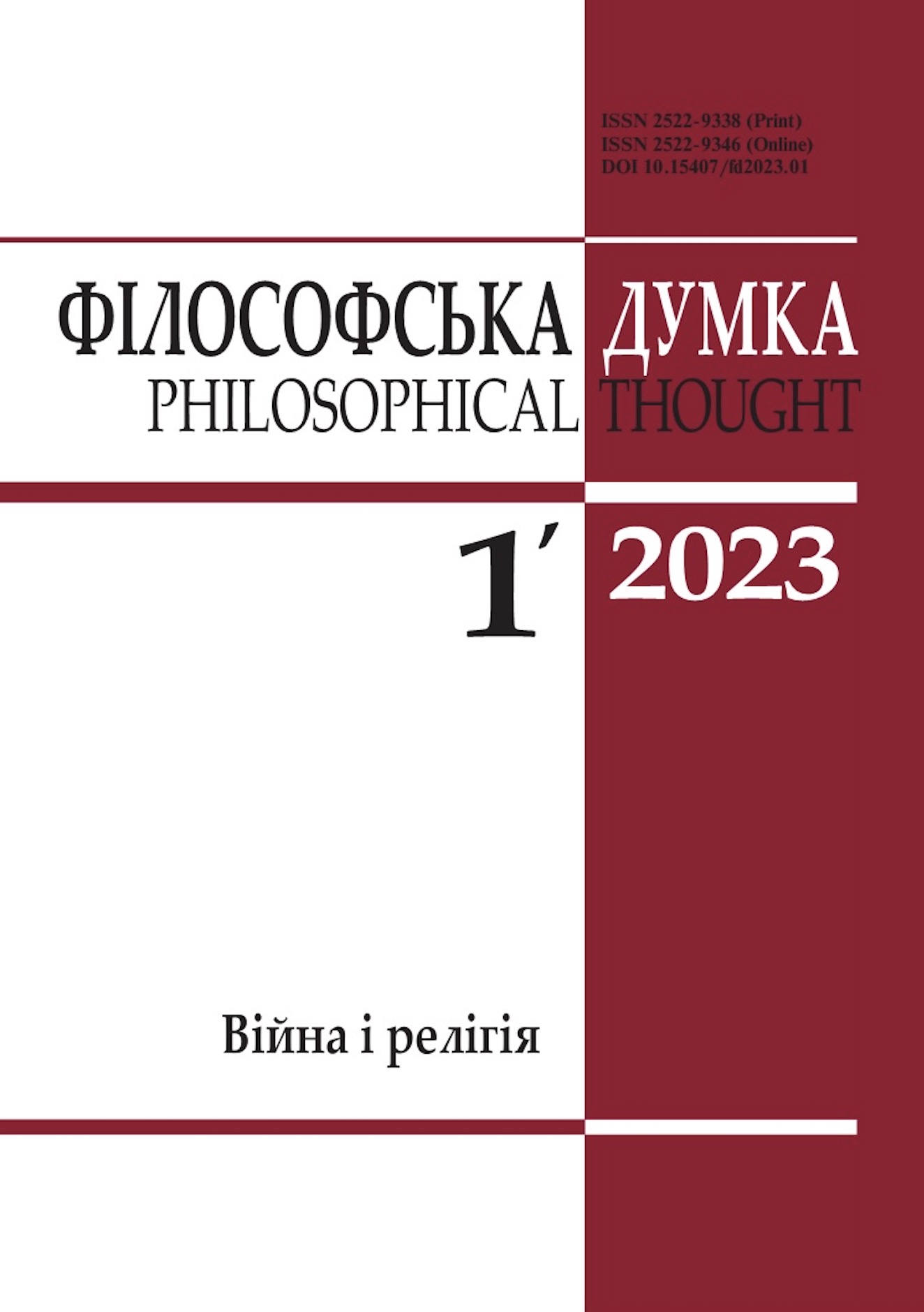Philosophy of Engineering and Design (Technological) Actions
LOGIC, METHODOLOGY AND PHILOSOPHY OF SCIENCE
DOI:
https://doi.org/10.15407/fd2023.01.148Keywords:
Philosophy of Technology, Humanities Philosophy of Technology, Philosophy of Engineering, Philosophy of Engineering and Design (Technological) Actions, Philosophy of Science, Philosophy of Action and Agency (Practical Philosophy), EpistemologyAbstract
We live in a world of technologies. Classical Philosophy of Science, Philosophy of Technology, Episte- mology, etc. philosophical disciplines appear insufficient for valid reflections on today's world. The Philo- sophy of Engineering and Design (Technological) Actions is seen promising to become a fruitful field of philosophical reflections and is offered from the perspective of the Philosophy of Action and Agency (Practical Philosophy). The foundations of the latter are presented in Part II. In the Part I, the Phi- losophy of Engineering and Design (Technological) Actions is outlined in a comparative with Philo- sophy of Technology, Humanities Philosophy of Technology, Philosophy of Engineering, Philosophy of Science, Epistemology, etc. plane. The paradoxes of E. Feenberg's technique, the interpretation of which is proposed in the part III, are involved for the illustrating of the maintained understanding. In the conclusive part (IV) the general danger of distortive philosophical understandings about the tech- nological common world of today are mentioned.
References
Feenberg, A. (2010). "Ten Paradoxes of Technology". Techné, 14 (1), 3-15.
https://doi.org/10.5840/techne20101412
Franssen, M., Lokhorst, G.-J., Poel, I. van de (2022). "Philosophy of Technology". In: The Stanford Encyclopedia of Philosophy (Winter 2022 Edition), Ed by E.N. Zalta, U. Nodelman (forthcoming). Retrieved from: https://plato.stanford.edu/archives/win2022/entries/technology/
Hempel, C.G. (1965). Aspects of Scientific Explanation and other Essays in the Philosophy of Science. New York: Free Press.
Hilpinen, R. (1992). "Artifacts and Works of Art". Theoria, 58 (1), 58-82.
https://doi.org/10.1111/j.1755-2567.1992.tb01155.x
Kant, I. (2019). Groundwork for the Metaphysics of Morals, Oxford: Oxford University Press. Laktionova, А.V. (2016). Philosophy of Action: Monograph. [In Ukrainian]. Kyiv: Taras Shevchenko National University of Kyiv.
Laktionova, А.V. (2017). "The concept of Post-Truth in Contemporary Philosophical and Everyday World". [In Ukrainian]. Scientific Studies. Petro Mohyla Black See National University, 300 (288), 91-95.
Meyer-Abich, K.M. (1990). Aufstand für die Natur: Von der Umwelt zur Mitwelt. München; Wien: Hanser.
Mitcham, C. (1994). Thinking Through Technology: The Path Between Engineering and Philosophy. Chicago: University of Chicago Press.
https://doi.org/10.7208/chicago/9780226825397.001.0001
Russell, B. (1910-11). "Knowledge by Acquaintance and Knowledge by Description". Pro ceedings of the Aristotelian Society, 11, 108-128.
https://doi.org/10.1093/aristotelian/11.1.108
Simon, H.A. (1969). The Sciences of the Artificial. Cambridge, MA
London: MIT Press. Skolimowski, H. (1966). "The Structure of Thinking in Technology". Technology and Culture, 7 (3), 371-383. DOI:10.2307/3101935
https://doi.org/10.2307/3101935
Von Wright, G.H. (1963). Norm and Action: A Logical Enquiry. London: Routledge and Kegan Paul.
Wittgenstein, L. (1969). On Certainty. New York: Harper and Row.
Downloads
-
PDF
Downloads: 254
Published
How to Cite
Issue
Section
License
Authors who publish with this journal agree to the following terms:
- Authors retain copyright and grant the journal right of first publication.
- Authors are able to enter into separate, additional contractual arrangements for the non-exclusive distribution of the journal's published version of the work (e.g., post it to an institutional repository or publish it in a book), with an acknowledgement of its initial publication in this journal.
- Authors are permitted and encouraged to post their work online (e.g., in institutional repositories or on their website) prior to and during the submission process, as it can lead to productive exchanges, as well as earlier and greater citation of published work (See The Effect of Open Access).


